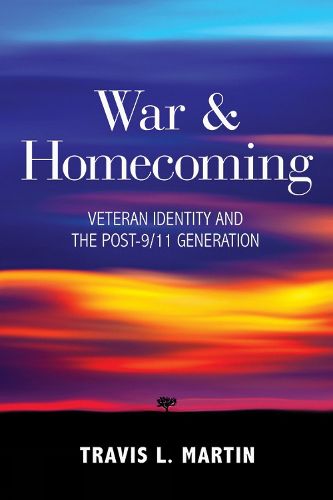Readings Newsletter
Become a Readings Member to make your shopping experience even easier.
Sign in or sign up for free!
You’re not far away from qualifying for FREE standard shipping within Australia
You’ve qualified for FREE standard shipping within Australia
The cart is loading…






More than 2.7 million post-9/11 veterans served in Iraq and Afghanistan. Their homecomings didn’t include parades or national celebrations, but civilians regard them with reverence and pride. Veterans’ benefits are comprehensive. The phrase thank you for your service is ubiquitous. Yet, one in ten post-9/11 veterans struggle with substance abuse. Fifteen to twenty veterans die by suicide every day, with 18-34-year-olds dying at the highest rates. These veterans carry intractable mental and physical wounds, leading advocates to focus on concepts like moral injury and collective belonging.
In War and Homecoming: Veteran Identity and the Post-9/11 Generation, Travis Martin, a scholar, teacher, and former veteran himself, argues that post-9/11 veterans struggle with homecoming because of decades of stereotyping and a lack of healthy models of veteran identity. In the American unconscious, veterans are the superficially praised ‘hero’, the victimised ‘wounded warrior’, forever defined by past accomplishments. They are appropriated as symbols in competing narratives of national identity. War and Homecoming explores past and current stereotypes often found in patriotic rhetoric, popular media, literature, and veterans’ lives.
Luckily, a third type of post-9/11 veteran has emerged, the veteran ‘storyteller’ who recognises stereotypes, claims their symbolic authority, and defines who they are through literature, art, and service. This identity allows for continued growth, and these ‘storytellers’ provide examples of identity rooted in agency, individuality, and resilience for other veterans to model. New creative communities, service organisations, and the growing academic field of Veterans Studies suggest post-9/11 veterans are redefining what it means to be a veteran.
$9.00 standard shipping within Australia
FREE standard shipping within Australia for orders over $100.00
Express & International shipping calculated at checkout
More than 2.7 million post-9/11 veterans served in Iraq and Afghanistan. Their homecomings didn’t include parades or national celebrations, but civilians regard them with reverence and pride. Veterans’ benefits are comprehensive. The phrase thank you for your service is ubiquitous. Yet, one in ten post-9/11 veterans struggle with substance abuse. Fifteen to twenty veterans die by suicide every day, with 18-34-year-olds dying at the highest rates. These veterans carry intractable mental and physical wounds, leading advocates to focus on concepts like moral injury and collective belonging.
In War and Homecoming: Veteran Identity and the Post-9/11 Generation, Travis Martin, a scholar, teacher, and former veteran himself, argues that post-9/11 veterans struggle with homecoming because of decades of stereotyping and a lack of healthy models of veteran identity. In the American unconscious, veterans are the superficially praised ‘hero’, the victimised ‘wounded warrior’, forever defined by past accomplishments. They are appropriated as symbols in competing narratives of national identity. War and Homecoming explores past and current stereotypes often found in patriotic rhetoric, popular media, literature, and veterans’ lives.
Luckily, a third type of post-9/11 veteran has emerged, the veteran ‘storyteller’ who recognises stereotypes, claims their symbolic authority, and defines who they are through literature, art, and service. This identity allows for continued growth, and these ‘storytellers’ provide examples of identity rooted in agency, individuality, and resilience for other veterans to model. New creative communities, service organisations, and the growing academic field of Veterans Studies suggest post-9/11 veterans are redefining what it means to be a veteran.